Best JSON Extraction Tools to Buy in February 2026
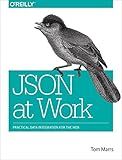
JSON at Work: Practical Data Integration for the Web


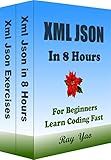
Xml Json Programming, In 8 Hours, For Beginners, Learn Coding Easily: Xml Json Scripting, Crash Course Textbook & Exercises (2nd Edition) (Textbooks in 8 Hours 18)


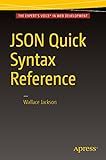
JSON Quick Syntax Reference


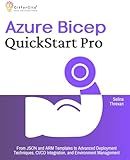
Azure Bicep QuickStart Pro: From JSON and ARM Templates to Advanced Deployment Techniques, CI/CD Integration, and Environment Management


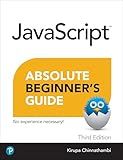
Absolute Beginner's Guide to Javascript, Third Edition


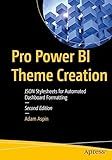
Pro Power BI Theme Creation: JSON Stylesheets for Automated Dashboard Formatting


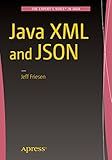
Java XML and JSON


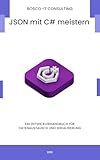
JSON mit C# meistern: Ein Entwicklerhandbuch für Datenaustausch und Serialisierung (German Edition)


In Scala, you can extract a JSON string value by using popular libraries such as Jackson, Play-JSON, or Circe. Here's an example of how you can achieve this using the Circe library:
- First, make sure you have added the Circe dependency to your project. You can add it to your build.sbt file with the following line: libraryDependencies += "io.circe" %% "circe-core" % "X.X.X"
- Import the necessary Circe classes in your Scala file: import io.circe._ import io.circe.parser._
- Define a JSON string: val jsonString = """{"key": "value"}"""
- Parse the JSON string and obtain a Json object: val json: Json = parse(jsonString).getOrElse(Json.Null)
- Extract the string value using the "key" from the JSON object: val value: Option[String] = json.hcursor.downField("key").as[String].toOption The value will be of type Option[String] because the key may or may not exist in the JSON. Check if it's defined and then access the value accordingly.
- You can use the extracted string value as per your requirements.
Note: This example demonstrates extraction from a simple JSON object. If your JSON structure is more complex, you may need to traverse different fields or arrays within the JSON using the provided libraries.
What is a JSON value and how is it represented in Scala?
A JSON value is a piece of data that can be represented in the JavaScript Object Notation (JSON) format. JSON values can be simple types such as strings, numbers, booleans, or null, as well as complex types such as objects (key-value pairs) and arrays (ordered lists of values).
In Scala, JSON values can be represented using libraries such as Play-JSON or Circe. These libraries provide data structures that correspond to JSON values, along with methods for creating, manipulating, parsing, and serializing JSON.
For example, in Play-JSON library, a JSON value can be represented using the JsValue type. Here's an example of representing a JSON object with a string value in Scala:
import play.api.libs.json._
// Creating a JSON object with a string value val json: JsValue = Json.obj("key" -> "value")
// Serializing the JSON object val serialized: String = Json.stringify(json)
println(serialized) // Output: {"key":"value"}
In Circe library, a JSON value can be represented using the Json type. Here's an example of representing a JSON array with two number values in Scala:
import io.circe._ import io.circe.syntax._
// Creating a JSON array with two number values val json: Json = Json.arr(1, 2)
// Serializing the JSON array val serialized: String = json.noSpaces
println(serialized) // Output: [1,2]
These examples demonstrate how JSON values can be represented in Scala using different JSON libraries. The syntax and libraries may vary, but the general concept of representing JSON values remains the same.
How to parse JSON data in Scala?
In Scala, you can parse JSON data using third-party libraries like Circe, Play JSON, or Jackson. Here's an example of how to parse JSON using Circe:
- Add Circe dependencies to your build.sbt file:
libraryDependencies += "io.circe" %% "circe-core" % "X.X.X" libraryDependencies += "io.circe" %% "circe-generic" % "X.X.X" libraryDependencies += "io.circe" %% "circe-parser" % "X.X.X"
Replace X.X.X with the version of Circe you want to use.
- Import the necessary Circe classes and methods:
import io.circe._ import io.circe.parser._
- Define a case class that represents the structure of the JSON data you want to parse:
case class Person(name: String, age: Int)
- Parse the JSON string using Circe's parse method and extract the required fields:
val jsonString = """{"name":"Alice","age":30}""" val json = parse(jsonString)
val result = json.flatMap(_.as[Person])
- Handle the parsing result, which can be either Right (successful parsing) or Left (failed parsing):
result match { case Right(person) => println(s"Name: ${person.name}, Age: ${person.age}") case Left(error) => println(s"Failed to parse JSON: ${error.getMessage}") }
This is just a basic example to get started with JSON parsing in Scala using Circe. You can explore the Circe documentation for more advanced usage and options.
How to transform JSON data into case classes in Scala?
To transform JSON data into case classes in Scala, you can use a JSON parsing library such as Play JSON or circe. Here's an example using Play JSON:
- First, include the Play JSON library in your project dependencies. You can do this by adding the following line to your build.sbt file:
libraryDependencies += "com.typesafe.play" %% "play-json" % "2.9.2"
- Define your case classes that represent the structure of the JSON data. For example, suppose you have the following JSON data:
{ "name": "John Doe", "age": 30, "email": "johndoe@example.com" }
You can define a case class to represent this data as follows:
case class Person(name: String, age: Int, email: String)
- Use the Play JSON library to parse the JSON data into a case class instance. Here's an example:
import play.api.libs.json._
val json = Json.parse("""{ "name": "John Doe", "age": 30, "email": "johndoe@example.com" }""")
val personResult = json.validate[Person] // validate the JSON against the Person case class
personResult match { case JsSuccess(person, _) => println(person) // JSON is valid, print the person instance case JsError(errors) => println(errors) // JSON is invalid, print the validation errors }
The validate method validates the JSON data against the Person case class. If the JSON is valid, it returns a JsSuccess with the case class instance. If there are validation errors, it returns a JsError with the error messages.
Note: Make sure to import the necessary classes and methods from Play JSON as shown in the example.
Similar processes can be followed with other JSON parsing libraries, such as circe, by adjusting the import statements and methods accordingly.
How to convert a Scala case class to JSON representation?
To convert a Scala case class to JSON representation, you can use the following steps:
- Add the necessary dependencies to your build.sbt file:
libraryDependencies += "com.typesafe.play" %% "play-json" % "2.9.2"
- Import the necessary libraries in your Scala file:
import play.api.libs.json._
- Create a case class with the fields you want to convert to JSON:
case class Person(name: String, age: Int)
- Define a Play JSON Writes implicit for your case class:
implicit val personWrites = Json.writes[Person]
- Create an instance of your case class:
val person = Person("John Doe", 30)
- Convert the case class instance to JSON:
val json = Json.toJson(person)
- The json variable now contains the JSON representation of your case class instance, which you can use as needed.
Here's a complete example:
import play.api.libs.json._
case class Person(name: String, age: Int)
object Main extends App { implicit val personWrites = Json.writes[Person]
val person = Person("John Doe", 30) val json = Json.toJson(person)
println(json) }
This will output the JSON representation of the Person case class instance:
{"name":"John Doe","age":30}
What is JSON parsing and how does it work in Scala?
JSON parsing refers to the process of converting JSON (JavaScript Object Notation) data into a structured format that can be easily processed by a programming language. It involves extracting the data from JSON documents and converting it into an object representation.
In Scala, JSON parsing can be achieved using various libraries such as Jackson, Play JSON, Circe, or Spray JSON. These libraries provide APIs to parse the JSON data and convert it to Scala objects.
Here is an example of how JSON parsing works using the Play JSON library in Scala:
- First, you need to add the necessary dependency in your build file to use the Play JSON library:
libraryDependencies += "com.typesafe.play" %% "play-json" % "2.x.x"
- Import the necessary classes from the Play JSON library:
import play.api.libs.json._
- Define a case class that represents the structure of the JSON data:
case class Person(name: String, age: Int)
- Parse the JSON data using the Json.parse method:
val json = """{"name": "John", "age": 30}""" val parsedJson = Json.parse(json)
- Extract the data from the parsed JSON using the as method and convert it to the desired Scala object:
val person = parsedJson.as[Person]
Now, the person object holds the data extracted from the JSON.
Note that different JSON parsing libraries may have slightly different APIs, but the overall process remains similar.
